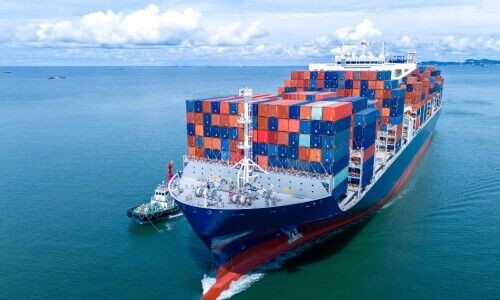Trump 2.0 promises higher ocean shipping rates and a flurry of frontloaded imports before he takes office in late January. A regional commercial banking headache again rears its head.
Oceangoing shipping and container freight rates are not things that tend to set hearts aflutter.
But there was a time not very long ago when you could mention the words Red Sea, logistics, and supply chain issues – and you be front and center of a heated discussion at an average round of drinks on a Friday night in Hong Kong.
Step in the Wrong Direction
A media release issued on Wednesday by Norwegian-based Xeneta, an ocean and air freight intelligence platform, indicates that many of the region’s commercial bankers will soon be in a whole new world of hurt.
According to them, the victory of Donald Trump in the US election is likely to lead to a spike in ocean container shipping freight rates and is a «step in the wrong direction».
Frontloading
Xeneta indicated that the last time Trump ramped up tariffs on China in 2018, rates spiked by more than 70 percent.
«The knee-jerk reaction from US shippers will be to frontload imports before Trump is able to impose his new tariffs. Back in 2018, the tariff on Chinese imports was 25 percent, now it is increasing up to 100 percent so the incentive to frontload is even greater,» Xeneta maintained.
Sudden Increase
The platform said that frontloading is the «simplest» way to manage the risk but also entails further problems down the line.
«A sudden increase in demand on major trade lanes into the US when ocean supply chains are already under pressure due to disruption in the Red Sea will place upward pressure on freight rates,» Xeneta indicated.
Spiralling Rates
Peter Sand, chief analyst at Xeneta, said 2024 has already been a brutal year for US shippers enduring massive disruptions from the Red Sea crisis and «spiraling» freight rates.
«Another Trump presidency will not be welcomed by US importers and exporters, but they needed a swift and clear result in the election. Uncertainty is toxic for supply chains, so at least the industry now has a clearer understanding of the financial and operational risk and can execute the plans they will have prepared in the event of another Trump presidency,» Sand maintained.
Shipping Hubs
In the financial centers of Singapore and Hong Kong, that will have significant implications, given they are also the second and eighth largest container ports in the world.
Moreover, ports in China take up five of the remaining places in the top ten, with Hong Kong neighbor Shenzhen placing fourth worldwide. In fact, the first extra-regional entry is Rotterdam, which is only in tenth place, followed by Dubai.
Last Minute Frenzy
For commercial bankers and the local shipping industry, this is all shaping up to sound like a lot of last-minute invoicing and not a lot of Christmas.



























